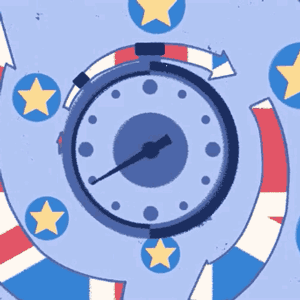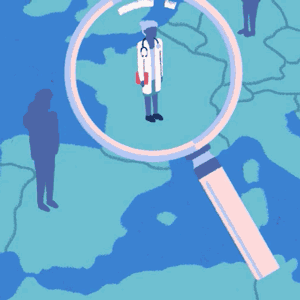Brexit Testimonies

John in Germany
"Born in 1980 in West Bromwich, I had only known Britain as a member of the European Community and later a member of the European Union; yet, as I experienced at school, few felt any real allegiance to the EEC, EC or later EU. It did not come as a surprise, therefore, that Sandwell, the election region where West Bromwich is located, chose to leave."
It was quarter to five in Germany on the morning of June 24, 2016 when it became impossible for the remain vote to overtake the leave vote. Britain voted to leave the European Union after being signed up to the club for over four decades. Born in 1980 in West Bromwich, I had only known Britain as a member of the European Community and later a member of the European Union; yet, as I experienced at school, few felt any real allegiance to the EEC, EC or later EU. It did not come as a surprise, therefore, that Sandwell, the election region where West Bromwich is located, chose to leave. For every one remain voter, including myself, there were two leave supporters, making Sandwell one of the most pro-Brexit regions in the entire country.
It was in the local education authority of Sandwell where I embarked on a journey of learning German, a skill that would equip me to go on to study German at Aston University and work around the world. Initially working as an intern in Austria and then on my sandwich placement in Germany, I came to see Europe through the eyes of continental Europeans: a project that seeks to avert future conflicts through trade, industry and exchange of goods, services and people.
It was, in 2009, when I arrived in Oldenburg, Germany, and where I have been living ever since. I moved to write up my PhD, but went into business with some local Germans and established a school of lifelong learning where English is taught as a foreign language. Setting up an educational business, creating a creative product, then employing people, both local and international, was no easy feat. Establishing such a business endeavour did not require any visas or long-winded bureaucratic processes. I had no start-up capital to commence with, but through sheer entrepreneurial spirit I created something of economic value with both local and international value.
The more certainty businesses have; the better they can plan for the future. As a small-to-medium-sized business, known in German as the Mittelstand, Brexit seriously undermines our ability to recruit from UK, not knowing whether we are going to have to contend with red tape from new regulations that may well govern UK nationals entering or attempting to enter the EU. Entrepreneurial Brits, like myself, who have gone out and learned the language may also find it harder to come to the continent and establish their own businesses, all depending, of course, on what regulations the UK and EU impose on each of its citizens.
But the complications extend far beyond recruiting. Our education service relies, too, on trips abroad and a foreign school exchange with a comprehensive school in Dudley, an exchange which is a vital lifeline for the school in an area where many students do not have much interaction with Europe. Laws governing children protection in the UK make it difficult enough to bring over German students to the UK; any additional immigration measures could easily lead to more time and money being spent on form filling as opposed to investing in intercultural activities, ones that the students can enjoy and remember.
Another contentious issue is EU financial support for joint UK-EU research projects. In 2015, I – with the amazing help and support of nationwide language leaders – saved Britain’s National Library for Languages known as CILT, and shipped it to Oldenburg, where the Academy of English acts as the custodian. Originally wishing to resurrect the library to its former glory and facilitate future exchanges with UK language partners, students, teachers and researchers, Brexit throws such plans into huge doubt and uncertainty. Will the UK be able to access EU block funding for joint European projects? If so, how; and, if not, why not?
On a personal note: fearing a loss of EU citizenship with all of its rights of free trade and free movement, I have made the conscious decision to apply for dual citizenship. According to German officials, provisions exist to allow British citizens living in Germany for eight years or longer to apply for dual nationality, something that I toyed with on Brexit day, but now that Article 50 has been triggered and negotiations have started, it is something that I am actively pursuing. Being in Germany for eight years, dual nationality is a luxury that is most likely going to be afforded to me; but I feel for those who are just embarking on that incredible journey of learning a language and don’t know whether Brexit is going to erect unnecessary barriers, both visible and invisible, that hinder exchange and cross-border cooperation.
 Timeline
Timeline Testimonies
Testimonies
 Mythbusters
Mythbusters

